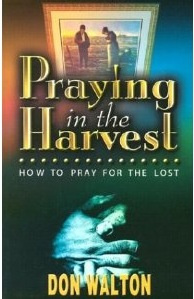The Importance of Importunity in Prayer

The Bible tells us in 1 John 5:14-15 that we can pray and know our prayers are answered. However, our Lord instructed us not to quit praying, but to keep asking, seeking, and knocking (Luke 18:1; 11:9-10). If I know my prayer is answered, why should I keep praying for an answer? If I do so, am I not doubting that my prayer is answered, in which case I shouldn’t expect “anything from the Lord” (James 1:6-7)? Do these seemingly contradictory teachings constitute a contradiction in the Bible?
Whenever Jesus taught on the importance of importunity (persistence) in prayer He accompanied His instruction with an illustrative parable. In the first instance, He told the parable of the friend at midnight (Luke 11:5-8). In the second, He told the parable of the widow and the unjust judge (Luke 18:2-6). In both instances, the petitioner persisted until the petitioned showed himself willing to grant the petitioner’s plea.
Persistence is imperative on the front-end of prayer. It is to be practiced until God reveals to us His willingness to grant the petition for which He has burdened us to pray. Once His will is revealed, we can pray in faith for God’s will to be done and rest assured that our prayer is answered. We need not pray anymore, only patiently wait for the manifestation of what our God-given confidence in prayer has already secured.
This explains away the seeming contradiction between the biblical teachings of importunity and confidence in prayer. It also speaks volumes about the impotence of our prayers today. Few Christians today are willing to pay the heavy price exacted by an importunate prayer life. We opt instead to simply toss up our prayers without ever bothering to kneel down to tussle with God over disclosures of the divine will.
According to Jesus, “it is given” only to His disciples—those who daily follow Him and live in fellowship with Him—“to know the mysteries of the kingdom of God” (Luke 8:10). God will never entrust fickle saints praying fleeting prayers with the revelation of the divine will. Such divine disclosures are reserved for Christ’s faithful disciples who have proven themselves trustworthy by their importunity in prayer.
If we really want our prayers for the lost to be effectual, we must be willing to spend long hours in our prayer closets and prayer meetings. There is no shortcut to opening the door of heaven to sinners or securing a favorable ruling from the heavenly bar for those condemned in trespasses and sins. We must be willing to drop to our knees and pay the heavy toll of persistent prayer; otherwise, there is little chance of God disclosing to us His elect so that we can partner with Him in their salvation.
Don Walton
|